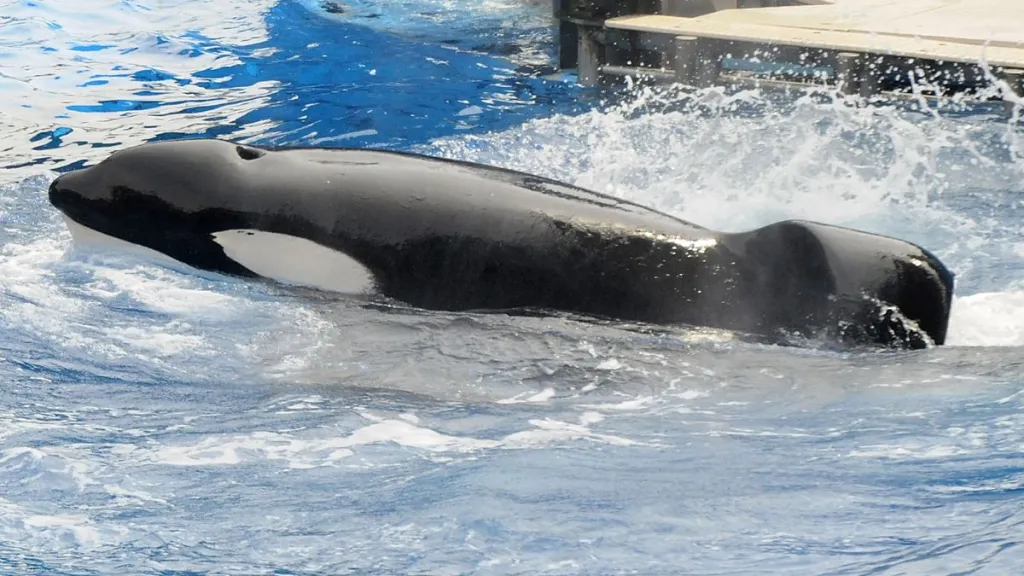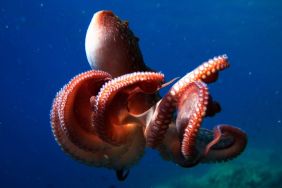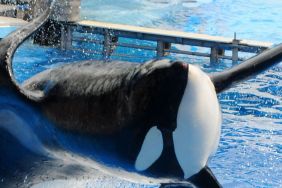The infamous male orca named Tilikum, who killed three people, died in January 2017. Reports suggest authorities captured him in 1983 in the waters off the coast of Iceland when he was only two years old. He first lived in a concrete holding tank in Hafnarfjördur Marine Zoo, Reykjavík. However, in 1984, Sealand of the Pacific in Vancouver became his new home.
Tilikum faced several problems in his new home because his tank was also home to two other female orcas: Haida II and Nootka IV. They constantly asserted their dominance over the young male, which forced the staff to transfer him to an isolated medical pool. Unfortunately, Tilikum’s story got sinister from this point onward.
February 1991, after a young student/marine biologist named Keltie Byrne fell into the pool housing Tilikum, Haida, and Nootka, they swarmed and drowned her. Several months after her passing, the doors of Sealand of the Pacific shut permanently, and Tilikum and his tankmates found themselves in SeaWorld, Orlando. On July 6, 1999, Tilikum killed a 27-year-old man named Daniel Dukes. Even though, after Daniel’s death, there were no casualties for a decade. However, on February 24, 2010, the orca brutally killed a 40-year-old trainer named Dawn Brancheau.
Reports suggest that Tilikum and Dawn surprisingly shared a very strong bond. The story of this infamous orca was made into a documentary in 2013 by CNN Films. Titled Blackfish, this project was nominated for the BAFTA Award for Best Documentary.
According to Rotten Tomatoes, its synopsis reads, “The story of Tilikum, a captive killer whale that has taken the lives of several people. It underscores problems within the sea-park industry, man’s relationship to nature. And how little has been learned about these highly intelligent mammals.”
How old was Tilikum at the time of his death?
At the time of his death, Tilikum was 35 years old. Interestingly, the death of Dawn Brancheau revealed a shocking truth. People learned that life was miserable for captive orcas. In 2018, The Sun interviewed a former SeaWorld trainer named Jeffrey Ventre. He stated that these animals showed signs of distress in captivity. He said, “There was a lot of self-mutilation. The whales and dolphins were stressed and this caused stomach ulcers. They were also sometimes aggressive or hard to control, so they could be given Valium to calm their aggression.”
Furthermore, Tim Zimmermann, Blackfish’s co-writer, wrote for National Geographic, revealing how Tilikum’s story changed everything. He wrote, “His life has changed how we view SeaWorld and the marine park industry. And changed our moral calculus regarding the confinement and display of intelligent, free-ranging species.”
Furthermore, a senior vice president of PETA named Lisa Lange released a statement. She said, “Tilikum must be the last orca to die at a SeaWorld amusement park. Sea World needs to release all the remaining animals from its parks.”
She continued, “The orcas, beluga whales, bottlenose dolphins, sea lions, walruses, penguins, and others. And rehabilitate and return them to nature or release them into coastal sanctuaries. Where they could spend the rest of their lives in as natural a setting as possible.”
According to National Geographic, Tilikum fathered 21 calves, 11 of whom died before his passing.










